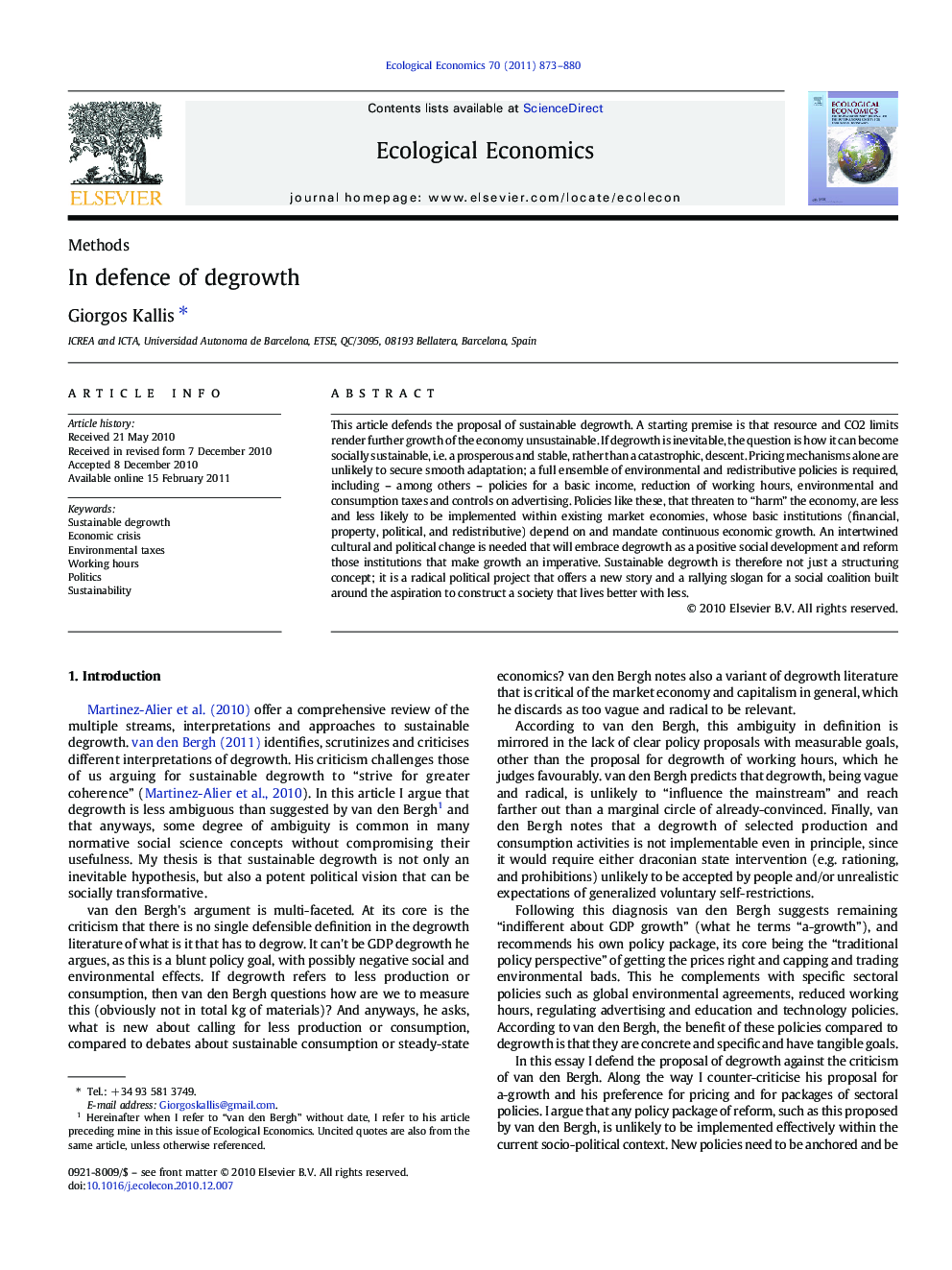| Article ID | Journal | Published Year | Pages | File Type |
|---|---|---|---|---|
| 5050660 | Ecological Economics | 2011 | 8 Pages |
This article defends the proposal of sustainable degrowth. A starting premise is that resource and CO2 limits render further growth of the economy unsustainable. If degrowth is inevitable, the question is how it can become socially sustainable, i.e. a prosperous and stable, rather than a catastrophic, descent. Pricing mechanisms alone are unlikely to secure smooth adaptation; a full ensemble of environmental and redistributive policies is required, including - among others - policies for a basic income, reduction of working hours, environmental and consumption taxes and controls on advertising. Policies like these, that threaten to “harm” the economy, are less and less likely to be implemented within existing market economies, whose basic institutions (financial, property, political, and redistributive) depend on and mandate continuous economic growth. An intertwined cultural and political change is needed that will embrace degrowth as a positive social development and reform those institutions that make growth an imperative. Sustainable degrowth is therefore not just a structuring concept; it is a radical political project that offers a new story and a rallying slogan for a social coalition built around the aspiration to construct a society that lives better with less.
Research Highlights⺠Sustainable degrowth is a socially sustainable and equitable reduction of society's throughput. ⺠Ecological sustainability is impossible with further economic growth. ⺠Economic degrowth is unstable, the objective is to make it socially sustainable. ⺠Core institutions of capitalist economies should change to enable a smooth descent. ⺠Degrowth is a radical, but politically feasible proposal.
